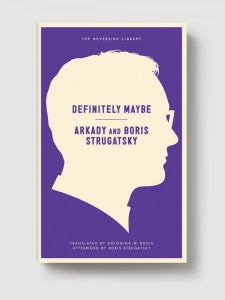It's a futuristic mystery dystopian sci-fi action-adventure romance. More or less.
Archetype, by M.D. Waters, is a terrifically engrossing read, perfect for a day spent sick in bed, or a weekend trapped inside your home, or very long bus rides. You get the idea. It's the kind of book that's more unputdownable than others.
The reviews and promo copy consistently reference Margaret Atwood's
Handmaid's Tale. There's some of that.
Emma wakes up in a medical facility with no memory of her life before "the accident" and little knowledge of how the world works outside of the hospital. Clearly she is expected, by her husband as well as by her doctor, to conform to a specific model of wife. There's an intense
Stepford Wives vibe (and a direct reference to that classic) to Emma's education regarding her expected behaviour.
Meanwhile, Emma deals with nightmares, which early on we suspect may be memories, and an inner voice that expresses constant resistance to the world outside. Emma thinks of the voice as a third party, but it's more likely a voice of conscience, or consciousness, her true self struggling to emerge through the haze of medication and neuroelectrical treatments.
It's only gradually that we become aware of the sociopolitical circumstances beyond the four walls to which Emma is confined, and indeed from which it seems she's being "protected." Women are commoditized and fertility is highly prized.
"That seems to be the big enigma for us all. Nobody can seem to pinpoint the exact reason, so they blame it on Mother Nature. Her way of compensating for the overpopulation of our species.
"Unfortunately, we'd already begun taking the steps to take are of this ourselves. Globally limiting families to one child, and at that time — oh, I'd say this started roughly two hundred years ago — couples could change the sex of their child to whatever they wanted. Men wanted their family line to continue, you see, so they chose male children more often than not."
[...]
But if you have the ability to change a child's sex, why not make more girls?" I say when I am sure his long explanation has ended.
He finds the book he was looking for and pulls it free, then heads back to his chair. "It has been outlawed after what happened last time. We do not want to risk a shortage of boys. Forcing nature to do our bidding is a risky business."
Gradually we learn about the Women's Training Centers, where women are prepared for marriage.
"Roughly a hundred years ago, a civil war broke out and split the United States right down the middle. Women in the west live free, while the east forces women at a young age into society as they see fit. It's slavery masked as a training center."
So that's the dystopian backdrop. The rest is spoiler territory.
Archetype is more entertaining than thought-provoking, but it does raise some interesting issues about identity. It's not Atwood-caliber prose or imaginings. And perhaps it tries to pack in a plot — or genre — or two more than it ought. But it's suspenseful, and there are a few twists that caught me off guard. And I will be reading the sequel,
Prototype, due out in July.
(Note that this book is in some places billed as YA, but it's a little too steamy, in my view, to fit comfortably in this category.)
Excerpt.
Profile:
Shelf Awareness (in which the book sounds smarter than its author).
Review:
A.V. Club.
 My assistant's favourite poem remains a secret, but I maintain that it's not an inappropriate discussion to have. To the contrary, I think it's essential, and my assistant has dropped in my esteem as a result. (My assistant also favours American spelling and is lax about punctuation.)
My assistant's favourite poem remains a secret, but I maintain that it's not an inappropriate discussion to have. To the contrary, I think it's essential, and my assistant has dropped in my esteem as a result. (My assistant also favours American spelling and is lax about punctuation.)



